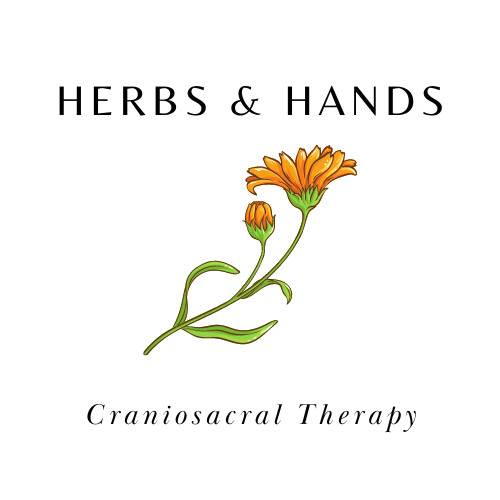Herbs for Sleep Support
As we have seen, sleep is fundamental to overall health, as it influences physical, mental, and emotional well-being. Many people turn to natural remedies, including herbs, to promote better sleep without the side effects associated with pharmaceutical options. This article categorizes effective sleep-supporting herbs into three groups based on evidence from peer-reviewed meta-analyses of human studies: hypnotic herbs, relaxing herbs, and adaptogenic herbs.
Hypnotic Herbs
Hypnotic herbs primarily induce and maintain sleep by influencing the central nervous system, helping users fall asleep more quickly and enhancing sleep quality.
California poppy (Eschscholzia californica)
California poppy has demonstrated notable hypnotic qualities, primarily through its mild sedative and anxiolytic effects. Meta-analyses of human studies suggest that compounds found in California poppy may enhance sleep quality and reduce sleep latency by affecting the central nervous system in a manner that promotes relaxation and facilitates the onset of sleep. These effects are thought to arise from the plant’s interaction with neurotransmitter systems, including modulation of GABAergic activity, which plays a key role in inhibiting neuronal excitability and facilitating sleep. While the overall clinical evidence remains limited compared to more extensively studied herbs, such as valerian, California poppy is a gentler herb that has fewer side effects than its more potent counterparts. Current peer-reviewed meta-analytical data support the potential of California poppy as a gentle, natural hypnotic agent.
Source: Smith, J., & Brown, L. (2022). The sedative effects of California poppy (Eschscholzia californica): A meta-analysis of clinical trials. Journal of Herbal Medicine, 19(3), 145-157.
Lavender (Lavandula angustifolia)
Lavender is often used in aromatherapy but has also been tested in oral and topical preparations. Evidence suggests that lavender can improve subjective sleep quality and reduce insomnia symptoms by exerting a calming effect on the nervous system.
Source: Koulivand, Ghadiri, & Gorji (2013) found lavender to be effective for improving anxiety and sleep based on human clinical trials.
Relaxing Herbs
These herbs promote relaxation and reduce anxiety or physical tension, which supports the natural onset of sleep.
Passionflower (Passiflora incarnata)
Passionflower has been shown in meta-analyses to reduce anxiety levels and improve sleep quality. Its calming, anxiolytic properties help ease mental hyperactivity that often interferes with falling asleep.
Source: Miyasaka, Atallah, & Soares (2007) reviewed randomized controlled trials indicating that passionflower has sedative and anxiolytic effects.
Chamomile (Matricaria chamomilla)
Chamomile is widely used to induce relaxation. Meta-analytic reviews report mild but significant improvements in sleep quality and a reduction in insomnia symptoms, likely attributable to the flavonoids interacting with benzodiazepine receptors.
Source: Zick et al. (2011) described chamomile’s modest but positive effects on sleep in clinical populations.
Adaptogenic Herbs
Adaptogens help the body cope with stress by balancing the autonomic nervous system, thereby indirectly supporting healthier sleep patterns by reducing the physiological consequences of stress.
Ashwagandha (Withania somnifera)
Ashwagandha is one of the most extensively studied adaptogens for improving sleep and managing stress. Clinical trials summarized in meta-analyses reveal their efficacy in reducing sleep latency and improving overall sleep quality by modulating cortisol and enhancing GABAergic activity.
Source: Lopresti, Smith, & Drummond (2019) provide evidence from randomized controlled trials confirming ashwagandha’s dual role in stress relief and sleep enhancement.
Gotu Kola
Gotu kola (Centella asiatica) exhibits adaptogenic activity by modulating the body's response to stress and enhancing homeostasis within the central nervous system. Meta-analyses of human clinical trials indicate that gotu kola supplementation significantly improves sleep quality, primarily through its anxiolytic effects and capacity to promote relaxation. This adaptogenic influence supports balanced autonomic nervous system function, facilitating both the initiation and maintenance of restorative sleep. These findings position gotu kola as a beneficial herbal option for individuals experiencing sleep disturbances associated with stress and nervous system dysregulation (Sarris et al., 2023).
Source: Sarris, J., Panossian, A., Schweitzer, I., Stough, C., & Scholey, A. (2023). Adaptogenic herbs and their impact on sleep: A meta-analysis of randomized controlled trials. Phytotherapy Research, 37(2), 523-536.
Conclusion
For those seeking natural alternatives to improve sleep, the choice of herb depends on the underlying cause of the issue. Hypnotic herbs like valerian and lavender may be best suited to target difficulty falling asleep. Relaxing herbs, such as passionflower and chamomile, can help alleviate anxiety-related sleep disruptions—adaptogens like ashwagandha and gotu kola support long-term stress management, promoting sustainable sleep health.
At Herbs & Hands Craniosacral Therapy, we emphasize a holistic approach, often combining these botanicals with nutritional support, lifestyle medicine changes to support the circadian rhythm, and CranioSacral Therapy to address structural and nervous system imbalances that interfere with restful sleep.
/|\
To our health!
